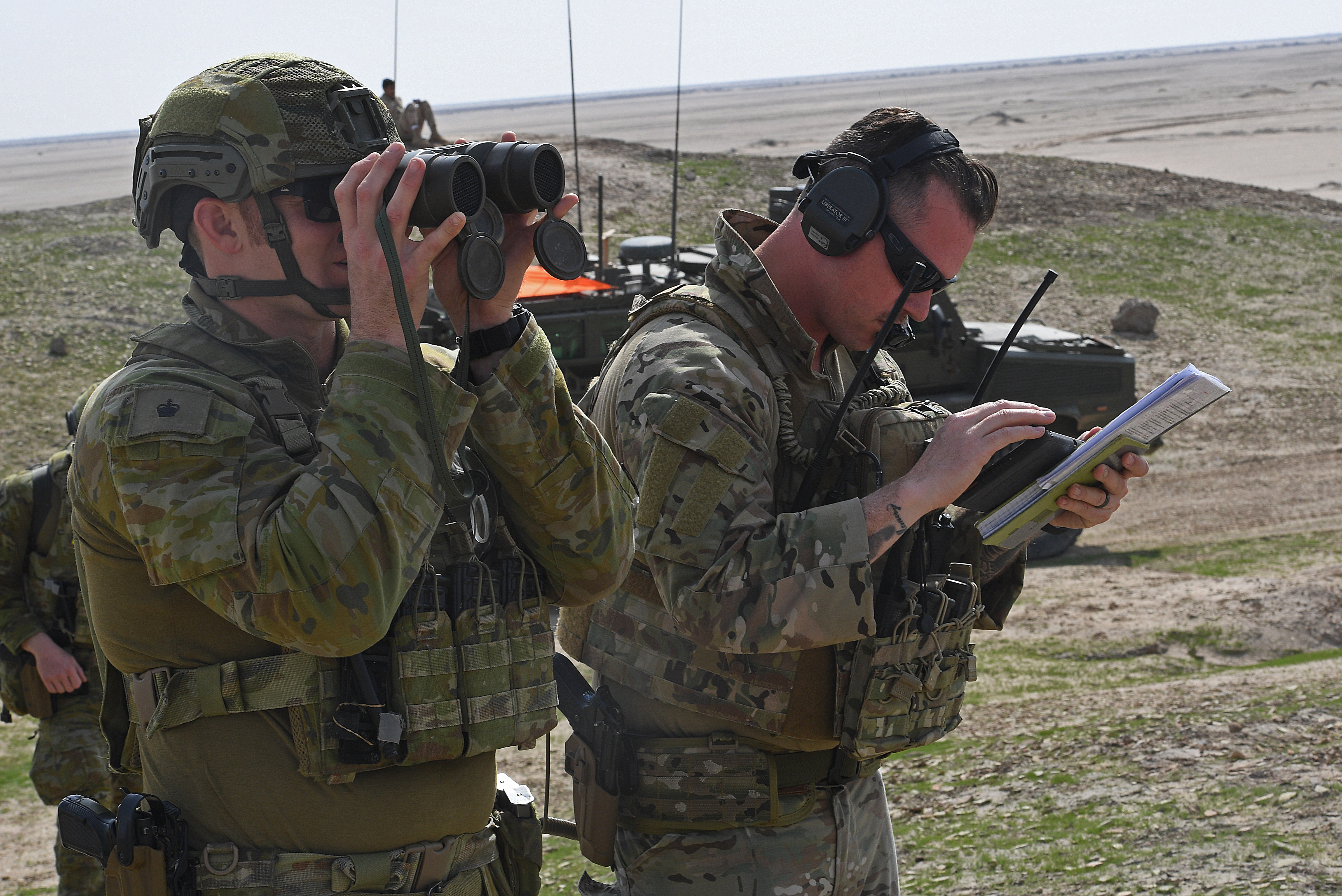Australian Army Maj. Chris Lingard (left), Task Group Taji Victor 4 training squadron commander, and USAF TSgt. Wayne Collier, 370th Air Expeditionary? Advisory Squadron joint terminal attack controller, monitor an approaching vehicle during an Iraqi-Air Force joint terminal attack controller qualification course at Besmayah Range, Iraq, March 4, 2018. USAF photo by SSgt. Sean Martin.
The US-led coalition team focused on training the Iraqi Air Force will soon morph into a full wing based in the country with the aim to better train Iraqi pilots and forward air controllers.
Combined Joint Task Force-Operation Inherent Resolve in February stood up the Coalition Aviation Advisory and Training Team that helps Iraqi crews focus more on training as combat operations against ISIS have waned. This team will become a wing, with about 350 US members and between 100-120 coalition members helping with advanced pilot training and ground training for close air support, said USAF Brig. Gen. Andrew Croft, the deputy air commander of the coalition’s land component command.
“It is our goal to make them better,” Croft said during a Pentagon briefing Tuesday.
Iraqi F-16 pilots will continue basic and advanced fighter training at Tuscon International Airport, Ariz., and then transition to Balad Air Base in Iraq for follow-on training. The IAF has 21 F-16s at Balad, and 14 in Tuscon, Croft said. Last November, Iraq transitioned its F-16s away from combat operations to training, and since then pilot training sorties have tripled in frequency, he said.
At Balad, there are 20-25 fully qualified Iraqi F-16 pilots helping training four to five new pilots at any given time, Croft said.
In addition to F-16s, US and coalition advisers are helping the Iraqi Air Force train on other aircraft such as L-159s, C-130Js, and C-208s, along with training aircraft such as Cessna 172s, Cessna 208s, T-6s, and T-50s, according to Air Forces Central Command.
US and coalition forces are helping them with advanced flight training, close air support training, medical evacuation, maintenance, and logistics, he said. The build up of the coalition training contingent is a “crucial step” to help Iraq in consolidate “their gains after years of combat,” Croft said.

